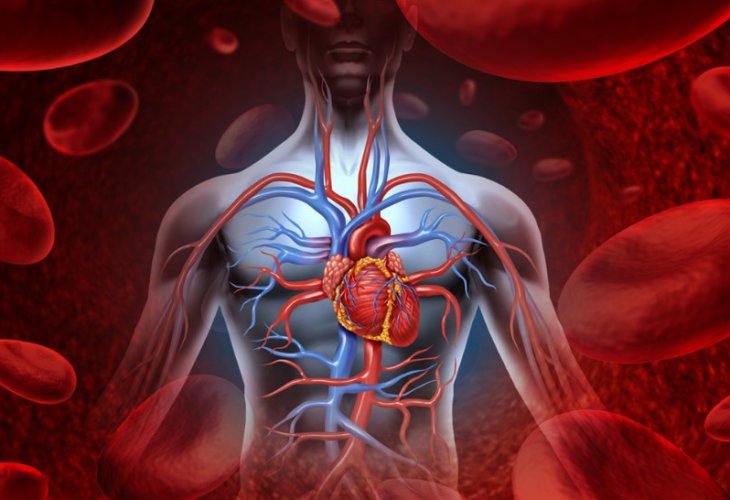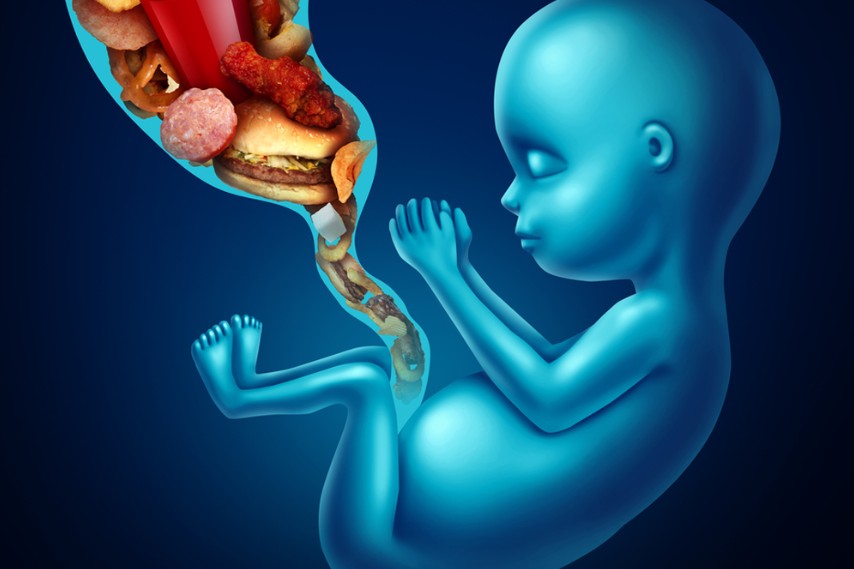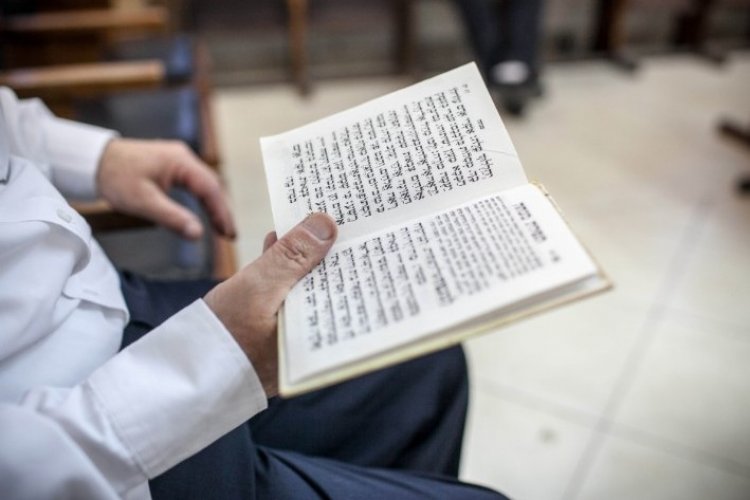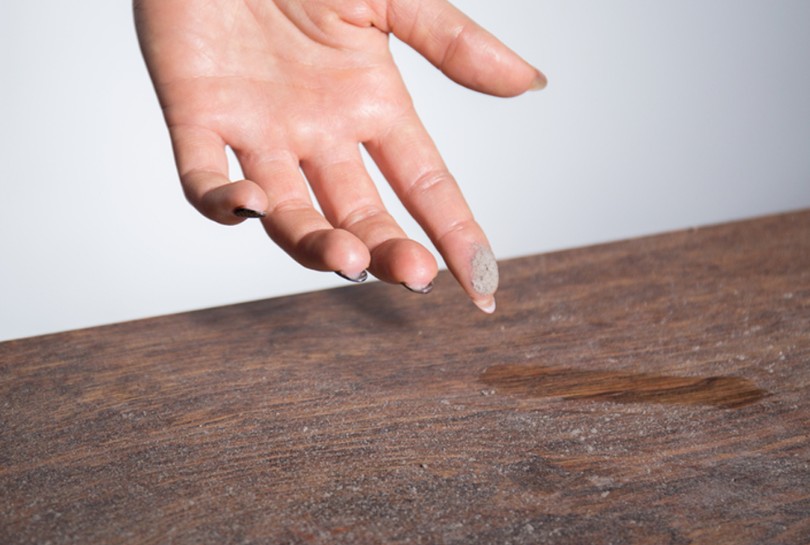Are There Really Vestigial Organs in the Human Body? 5 Points to Consider
Why do we need to pray three times a day? Why do righteous people suffer and wicked people thrive? What happens when we inhale dust, and what happens to a fetus' excretions in the womb?
 (Photo: shutterstock)
(Photo: shutterstock)Vestigial Organs in the Human Body?
Recently, I encountered various sites that surprisingly discuss "Which organs in the human body are vestigial?"; "Organs we don't need"; "Flaws in the human body"; "Useless body parts" and so on.
The main argument of the writers is that while the human body is an efficient and sophisticated creation, it has quite a few completely unnecessary organs or production flaws that only cause us trouble, like the appendix, earlobe, goosebumps, wisdom teeth, and more. Behind these ridiculous claims stands the bizarre idea that the process of evolution left us with unnecessary and useless organs. In other words, evolutionary remnants.
What arrogance! They boldly and confidently determine which organs are necessary and which are not. If they don't know why an organ exists, does it mean it has no use? That's absurd. Unfortunately, naive readers exposed to this information, presented "scientifically," wonder: If there's Hashem, how does He make such mistakes?
I'm sure these writers would vehemently refuse my offer to remove from their bodies those same organs they publicly deem "unnecessary."
So rest assured. The human body is the most sophisticated, wondrous, and perfect creation in the world, with zero flaws. Every organ has a role and purpose. If a scientist claims a certain organ has no purpose, it simply means the scientist has yet to understand its purpose.
Take the appendix, mentioned as a "useless" organ that only causes problems. It has now been discovered that there is a good reason for its existence. The appendix is a short, narrow tube, closed at one end, that extends from the beginning of the large intestine. It serves as a reservoir, a safe haven, for beneficial bacteria living in the human gut that can protect the intestine after severe bowel illnesses. When gut bacteria are damaged due to infection or antibiotics, the appendix acts as a storehouse for redeploying gut bacteria that can repopulate the intestines with good bacteria.
Friends, even if I didn't know the role for which the appendix was created, I would believe our lack of progress in medical wisdom is the reason, just as many things have become clear as medical research advances, revealing details and functions previously unknown, with countless examples.
If there's something the Creator of the World made, and humans don't understand its purpose, it's only due to our limited understanding. Eventually, we will learn. And if we don't understand, we should be confident that everything the Creator of the World does is for the best!
Where Does the Fetus Excrete Waste?
One of the most intriguing questions during pregnancy is how the fetus excretes waste (urine and feces) in its mother's womb.
The fetus starts urinating from about the second trimester of pregnancy. Amniotic fluid mostly consists of the fetus's urine. The fetus swallows amniotic fluid, which after passing through its body, is excreted back into the womb (the placenta cleans the amniotic fluid to provide a nurturing environment for the fetus).
Wait, and what about feces?
The intestines are filled with digested amniotic fluid and dead cells, a sticky and putrid green-black tar-like substance called "meconium" (baby feces). If it reaches the baby's lungs during birth, it can attack the delicate mucous lining. However, in the intestines, meconium is harmless.
 (Photo: shutterstock)
(Photo: shutterstock)Note: During the womb stay, the fetus is not supposed to excrete feces; this process occurs only after birth. However, during fetal distress, muscle relaxation occurs, releasing accumulated fecal matter into the amniotic fluid ("meconium-stained waters" are essentially amniotic fluid containing fetal feces).
It is known that the first fecal output of the fetus should occur about 24 hours after birth.
Friends, the amniotic fluid should be entirely clear. This is what the fetus drinks, inhales into its lungs, and excretes urine into. The fetus does not excrete feces while in the womb. It will excrete feces for the first time only after entering the world!
Given the dangers of fecal excretion into the amniotic fluid, which can be fatal to the fetus, who 'programmed' the fetal body to keep the anal muscles closed and not excrete feces during pregnancy, yet know to excrete after birth? Also, isn't it miraculous that for 9 months, the fetus lives peacefully and comfortably without excreting waste from its body?
Praying Three Times a Day
"I need to rush to the synagogue for Mincha prayers," I said to a friend. "Again with the praying? Didn't you already pray this morning?" replied my secular friend, expressing discomfort at my need to go.
So why indeed do we need to pray three times a day? Why isn't once enough? Moreover, does the Creator of the World, all-powerful, need our prayers?
Indeed, the Creator of the World doesn't need our prayers. The prayers are for us, not for Him.
 (Photo: shutterstock)
(Photo: shutterstock)What is it like? Imagine two adolescent friends chatting three times a day. Do you think they feel as close and connected as two friends speaking only once a day? Certainly not! It's the same with us and the Creator...
Prayer is a gift allowing us to draw closer to the Creator of the World. The more we engage in prayer and conversation with Him, the closer we feel than ever before...
May it be His will that we understand this and increase our prayers to the Creator of the World, Amen.
Air Filter
Recently, I renovated my house. After the renovation, the air in the apartment was murky and full of dust and dirt, hindering breathing. I started coughing and felt a burden on my respiratory system and overall discomfort.
As is known, dust contains particles that can harm the respiratory system, whose job is to supply oxygen to the body, cleanse it of carbon dioxide, and thus create the metabolism needed for energy and the body's proper function.
So, what exactly happens to the body when we breathe in dust?
 (Photo: shutterstock)
(Photo: shutterstock)Dust particles entering the respiratory system can cause various harms, such as breathing difficulties, excessive secretions, and phlegm buildup, leading to significant shortness of breath. Naturally, shortness of breath causes the heart to exert more effort, posing a risk even for those with heart conditions. Additional symptoms include fatigue, headaches, and overall malaise.
So, how does our body manage?
The air we breathe contains high levels of dust particles. We can endure such conditions thanks to the genius and efficient ventilation system in our respiratory tract. This system filters almost all dust, which at high concentrations can threaten our health. For example, most large dust particles and a small portion of tiny ones are trapped by nasal hairs moving in the opposite direction when the dust enters the nostrils. Additionally, the respiratory tract is lined with a thick layer of sticky mucus moving constantly upward toward the throat. Large dust particles cannot pass the bends and turns they encounter, and they stick to the mucus layer and are expelled.
However, most tiny particles (less than 5 microns in diameter) can pass through the respiratory tract's branching without touching the sticky edges, eventually finding their way to the alveoli, which must remain clean. Here, the lungs' second line of defense comes into play: white blood cells in the alveoli engulf foreign particles and transfer them to the lymphatic system, part of the immune system located at the lung base.
Insoluble dust particles remain in the lungs or lymphatic pathways permanently and can cause damage, ranging from severe pneumonia to lung cancer, the most notorious of which is asbestos.
"The Righteous Suffer, the Wicked Prosper"
Sometimes, from a human perspective, it seems as if there's no justice in the world. The common argument is, why bother fulfilling mitzvot when we clearly see G-d-fearing people keeping mitzvot suffering in life, while others desecrate Shabbat, pursue desires, and commit every possible sin, yet they seem happy and content. Where's the justice? It seems as if there's no Judgment or Judge... How can this be?
We must understand that the Creator's ways are often hidden from us.
First, we can't know if the person before us is truly righteous or wicked. Additionally, we can't know if what they have is genuinely good or harmful for them.
Second, assuming they are truly righteous or wicked, we can explain it this way: the righteous suffer in this world to prevent suffering in the next world. Likewise, the wicked receive their reward in this world instead of receiving a part in the next world for the few mitzvot they performed.
To explain: every "wicked" person has a few mitzvot done in life – even if sometimes they're unaware of it – like circumcision and honoring parents. But the Creator doesn't wish to bring them to the next world since the majority of their deeds are sinful. So what happens to the few mitzvot they have? The Creator rewards them for the few mitzvot here in this world, but their next world is forfeit, as it's said: "...and repays His enemies to their face, to destroy them: He will not delay to his enemy, but repays him to his face" (Deuteronomy 7:10).
In contrast, a righteous person has few sins in this life. The Creator loves him and wishes to bring him to the next world pure and clean, and to "purify" him from the few sins he has, the righteous suffer worldly tribulations and receive full rewards in the next world for the many mitzvot done, as it's said: "For whom Hashem loves, He rebukes, like a father the son He favors" (Proverbs 3:12).
When a great righteous person is killed in a severe accident, people say: Where is the justice in the world? Is this Torah and its reward? This is where the concept of choice lies, in how a person chooses to interpret reality. Seeing such events brings up many questions about the Creator's ways, and here a person's faith in the Creator is tested.
A person's greatness is when they understand they cannot fathom the ways of Hashem. This is why the faithful receive reward, because even if it seems like injustice, they believe that Hashem governs the world with personal care and for our good, and there's no way to know why it happens...

